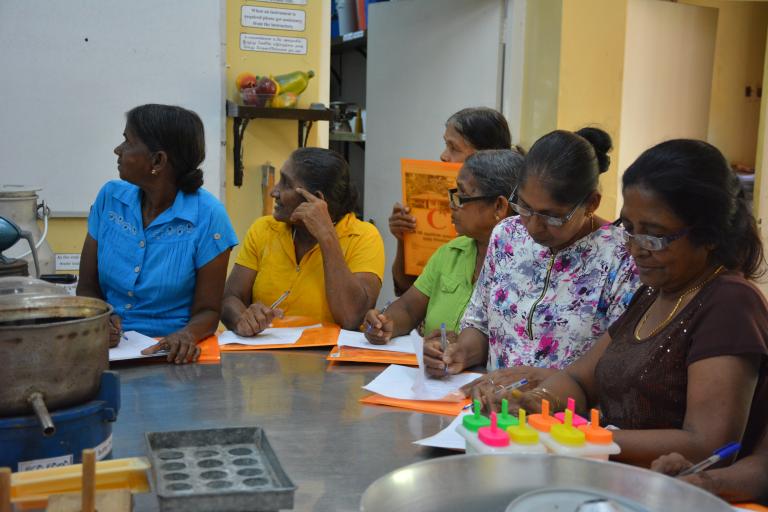
UNICEF, together with the Department of Census and Statistics, rolled out the National Multidimensional Poverty Index (NMPI) to inform relevant government policy decisions. UNFPA supported setting up National Time Transfer Accounts (NTTA) for Sri Lanka, enabling an understanding of age and gender as economic factors, while UNDP provided technical assistance to the National Planning Department on strengthening risk frameworks and SDG impact measurement and management in project evaluation. The UN’s technical coordination of development partners supported the Parliamentary Development Action Plan (2020-22), while UN Habitat and UNEP started the groundwork for the Country Assessment and Roadmap on Resource Efficient Housing, Buildings and Construction. Work in this area also included support for an independent assessment on Universal Health Coverage.
Programmatic priorities for 2021 included strengthening Sri Lanka's National Statistical Architecture and promoting Integrated Data systems, on which UNICEF helped with the generation of evidence, institutionalisation, measurement, and policy use on child poverty in all its forms. The inclusion of a child module in the Household Income and Expenditure Survey strengthened national capacity to calculate child and multidimensional poverty. UNFPA provided technical assistance to the Department of Census and Statistics to generate inclusive communications and data visualisation capacity and a media campaign linked to the Housing and Population Census. The creation of a digital repository of maternal and child mortality data was also supported. UNESCO, for its part, helped to generate SDG4- related benchmarks (Quality Education), on relevant indicators.
The national women's well-being survey to measure prevalence of violence against women was also supported, engaging key stakeholders on its findings, while an M&E system for the Ministry of Women and Development was facilitated with UNFPA support. UN Women conducted a needs assessment and a value chain analysis of economic opportunities for female-headed households to facilitate training for women entrepreneurs, while IOM supported a third phase of an Integrated Border Management System in Sri Lanka to strengthen migration management. UNDP supported the Sustainable Development Council’s mainstreaming of SDGs into Ministerial workplans by validating 104 SDG indicators and developing methodologies for data collection/identification of proxy or supplementary indicators. The National SDG Data Portal was launched at the 5th South Asia SDG Forum, spearheaded by UNDP’s Citra Social Innovation Lab with support from UNESCO, UNFPA, UN HABITAT, WHO, FAO, UNICEF, WFP, ILO, and the RCO.
In terms of exploring and promoting innovative, immediate, and long-term financing solutions for the SDGs, the SDG Investor Map—a market intelligence product—was produced to help private investors identify investment opportunities and business models that advance the SDGs. Emerging findings were presented to a multi-stakeholder reference group with the participation of senior government and private sector officials. A shortlist of Investment Opportunity Areas was finalised, from a long list of 24 potential investment opportunities.

